Table of Contents
- What are Serum Total Protein Levels?
- Causes of High Serum Total Protein Levels
- Symptoms and Potential Health Risks
- Diagnosing High Serum Total Protein Levels
- Treatment and Management
- Preventive Measures
- Importance of Monitoring Protein Levels
What are Serum Total Protein Levels?
Serum total protein levels refer to the amount of proteins present in the liquid part of your blood. Proteins play vital roles in various bodily functions, including cell growth and repair, hormone regulation, and immune system support.
Causes of High Serum Total Protein Levels
There are several factors that can contribute to elevated serum total protein levels, such as chronic inflammation, liver or kidney disease, dehydration, certain cancers, and genetic disorders.
High serum total protein levels in a blood test can indicate various underlying medical conditions. Here are some common causes:
- Dehydration: Insufficient fluid intake or excessive fluid loss can cause proteins to become more concentrated in the blood, leading to high serum total protein levels.
- Infection: Certain infections, such as viral or bacterial infections, can trigger an immune response that causes an increase in blood proteins.
- Inflammation: Chronic inflammation due to conditions like arthritis, autoimmune diseases, or liver diseases can cause elevated levels of total protein in the blood.
- Kidney disorders: Conditions affecting the kidneys, such as chronic kidney disease or nephrotic syndrome, can cause protein to leak into the blood, resulting in high serum total protein levels.
- Liver disease: Liver disorders, including hepatitis, cirrhosis, or liver cancer, can impair the liver's ability to regulate protein levels, leading to an accumulation of proteins in the blood.
- Multiple myeloma: This is a type of cancer that affects plasma cells in the bone marrow, causing an abnormal increase in the production of certain proteins, leading to elevated serum total protein levels.
It is important to consult a healthcare professional for further evaluation if you have consistently high serum total protein levels in your blood test, as it may indicate an underlying health issue.
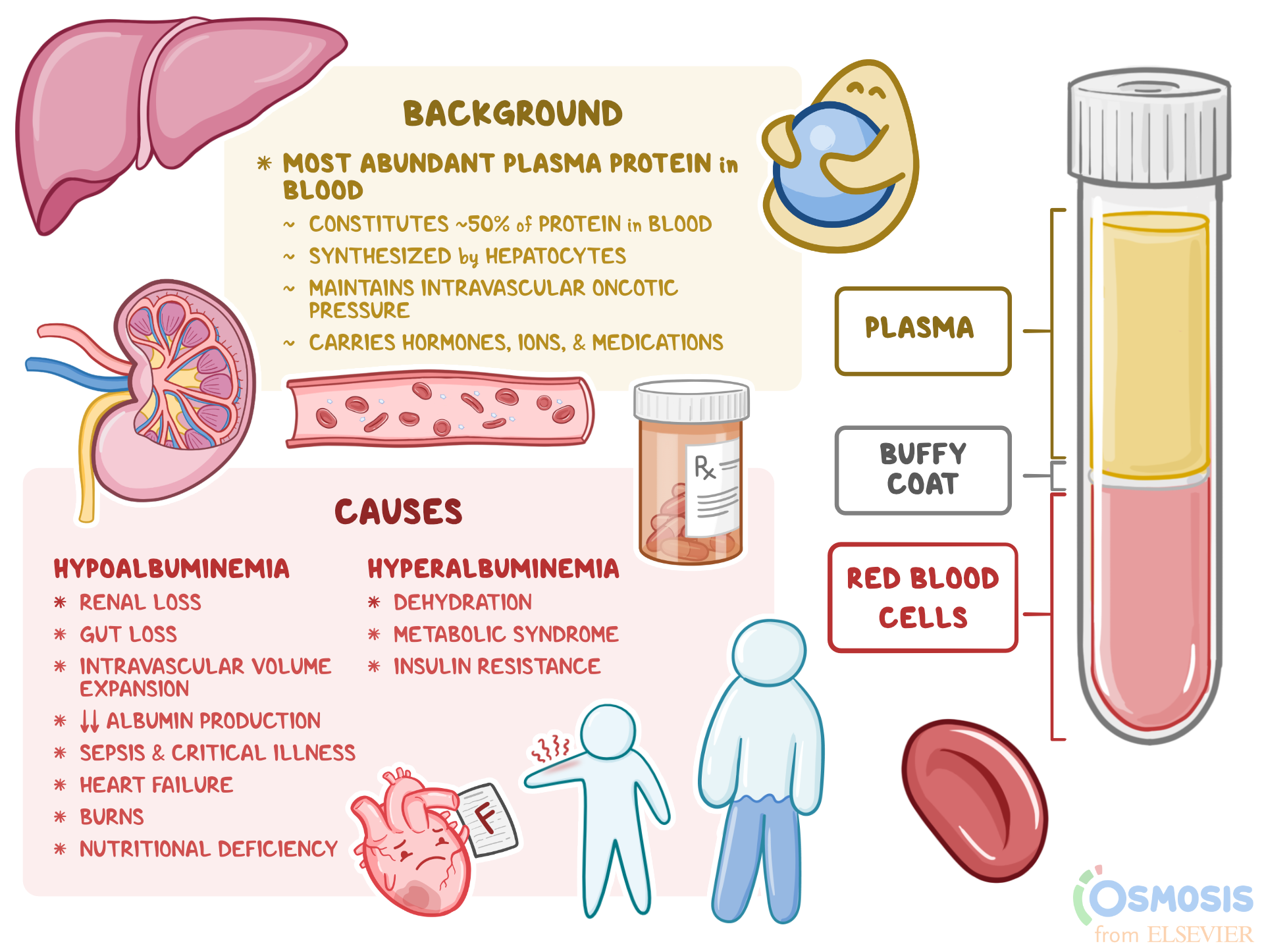
Symptoms and Potential Health Risks
High serum total protein levels may not typically cause specific symptoms, but they can indicate underlying health conditions. It's crucial to identify the cause as some conditions may require medical intervention or lifestyle changes.
Symptoms
High serum total protein levels in blood test may not always cause noticeable symptoms. However, some individuals with elevated protein levels may experience:
- Unexplained weight loss
- Swelling or puffiness, especially in the hands, feet, or face
- Difficulty breathing
- General fatigue and weakness
- Yellowing of the skin or eyes (jaundice)
- Changes in urine color or frequency
- Decreased appetite
- Nausea or vomiting
Potential Health Risks
High serum total protein levels can indicate various health conditions, some of which may pose risks if left untreated. These include:
- Liver diseases, such as hepatitis, cirrhosis, or liver cancer
- Kidney diseases, like chronic kidney disease or glomerulonephritis
- Inflammatory conditions, such as rheumatoid arthritis or lupus
- Multiple myeloma or other bone marrow disorders
- Dehydration or fluid imbalances
- Infections
If you have high serum total protein levels in your blood test, it is important to consult with your healthcare provider to determine the underlying cause and appropriate treatment options.
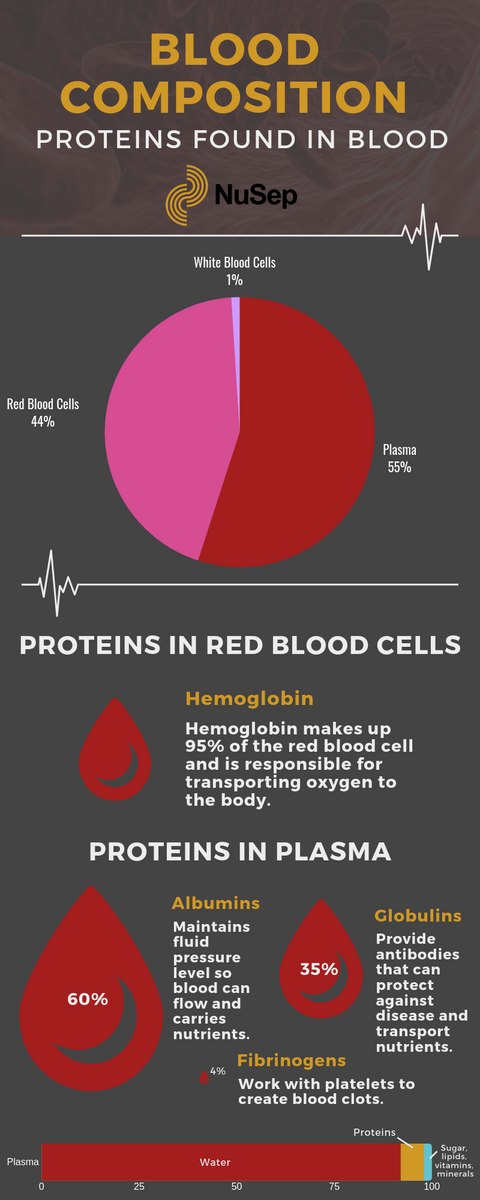
Diagnosing High Serum Total Protein Levels
Diagnosing high serum total protein levels involves conducting blood tests and other diagnostic procedures to determine the cause and assess overall health. It's important to work closely with a healthcare professional for accurate interpretation of results.
When undergoing a blood test, one of the parameters measured is the serum total protein levels. In some cases, these levels might be found to be higher than normal. Here, we will explore the process of diagnosing and understanding the implications of high serum total protein levels.
Causes of High Serum Total Protein Levels
Elevated serum total protein levels can be indicative of various underlying health conditions. These may include:
- Dehydration
- Infections
- Chronic inflammation
- Liver disease
- Kidney disease
- Bone marrow disorders
Diagnosis and Interpretation
Diagnosing high serum total protein levels involves analyzing the blood test results along with other clinical information. Additional tests might be recommended to identify the underlying cause. These may include:
- Complete blood count (CBC)
- Electrophoresis
- Liver function tests
- Kidney function tests
Interpretation of the results is usually done by a healthcare professional who will consider the patient's medical history, symptoms, and physical examination findings to provide a comprehensive diagnosis.
Treatment and Management
The appropriate treatment for high serum total protein levels depends on the underlying cause. It is crucial to address and manage the specific condition identified. Treatment options may involve medication, lifestyle changes, or surgical interventions. Regular monitoring of serum total protein levels might be recommended to assess the effectiveness of the treatment and ensure overall health improvement.
Diagnosing high serum total protein levels in a blood test requires careful evaluation of various factors. Identifying the underlying cause is crucial for effective treatment and management. Consulting a healthcare professional is important for proper diagnosis and to establish an appropriate course of action.
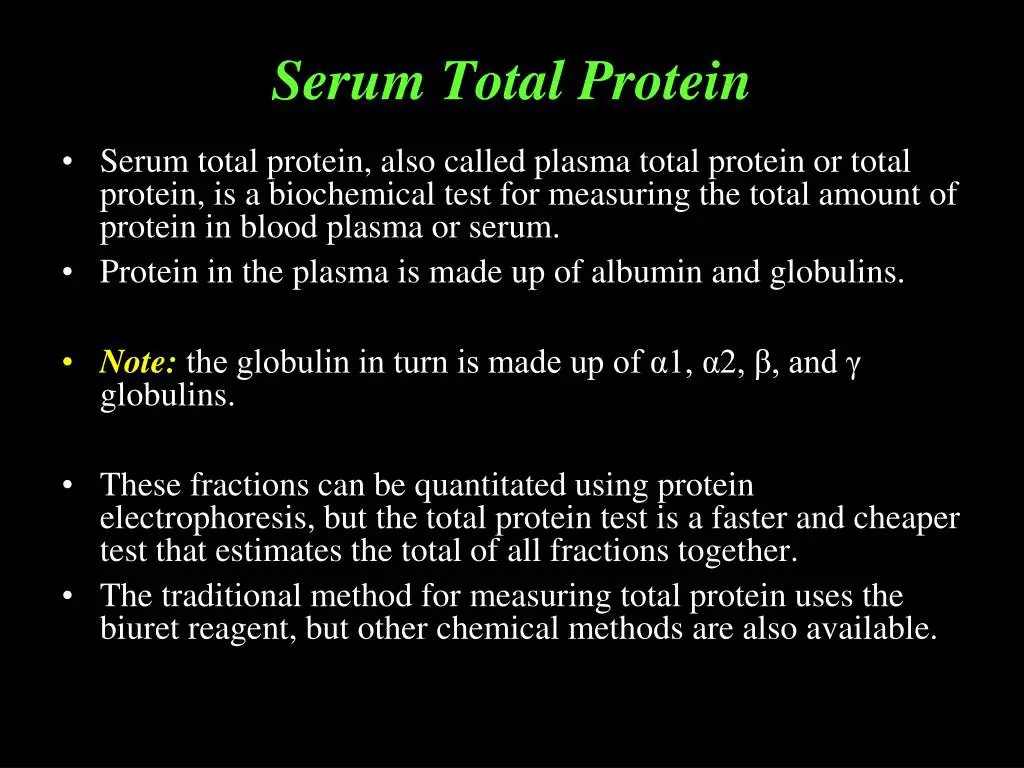
Treatment and Management
The appropriate treatment for high serum total protein levels depends on the underlying cause. Treatment may involve addressing the specific condition, managing inflammation, adjusting medications, or making necessary lifestyle modifications.
If you have recently received the results of a blood test indicating high serum total protein levels, it is important to understand the treatment and management options available to address this condition.
Causes of High Serum Total Protein Levels
High serum total protein levels can be caused by various factors, including:
- Dehydration
- Chronic infections or inflammatory conditions
- Liver disease
- Kidney disease
- Bone marrow disorders
Treatment Options
The treatment for high serum total protein levels depends on the underlying cause. It is essential to consult with a healthcare professional to determine the appropriate course of action. Possible treatment options may include:
- Rehydration: If dehydration is the cause, increasing fluid intake can help normalize protein levels.
- Medication: In cases of infections or inflammatory conditions, your doctor may prescribe medications to manage the underlying condition.
- Treatment of underlying diseases: If liver disease or kidney disease is contributing to high protein levels, addressing and managing these conditions is crucial for long-term improvement.
- Monitoring: Regular follow-up blood tests may be required to track protein levels and assess the effectiveness of treatment.
Lifestyle and Dietary Changes
Adopting certain lifestyle and dietary changes can also aid in managing high serum total protein levels:
- Maintaining a well-balanced diet that includes lean proteins, fruits, vegetables, and whole grains.
- Avoiding excessive alcohol consumption, as it can contribute to liver damage.
- Staying adequately hydrated by drinking enough water throughout the day.
- Regular exercise can help improve overall health and assist in maintaining normal protein levels.
- Managing stress levels through relaxation techniques and self-care.
High serum total protein levels in a blood test can be indicative of underlying health issues. Seeking proper medical guidance and treatment is vital to address the underlying cause. Along with medical intervention, making lifestyle and dietary changes can also support the management of high protein levels and overall well-being.

Preventive Measures
While not all causes of high serum total protein levels can be prevented, maintaining a healthy lifestyle, staying hydrated, managing chronic conditions, and seeking regular medical check-ups can help in preventing or managing any abnormalities.
High serum total protein levels in a blood test may indicate underlying health issues. Here are some preventive measures to consider:
- Adopt a balanced diet: Consume a well-balanced diet that includes lean proteins, whole grains, fruits, and vegetables. Avoid excessive intake of red meat and processed foods, which can contribute to elevated protein levels.
- Manage weight: Maintain a healthy weight by engaging in regular physical activity and adopting portion control. Excess weight can lead to increased protein production in the body.
- Limit alcohol consumption: Excessive alcohol consumption can cause liver damage, leading to abnormal protein levels. It is important to drink alcohol in moderation or consider avoiding it altogether.
- Stay hydrated: Drink an adequate amount of water daily to ensure proper kidney function. This helps in maintaining optimal protein levels in the blood.
- Avoid smoking: Smoking can contribute to various health problems, including elevated protein levels. Quitting smoking or avoiding it entirely can significantly improve overall health.
- Manage chronic conditions: If you have any underlying chronic conditions such as kidney or liver disease, diabetes, or hypertension, follow your healthcare provider's instructions to manage these conditions effectively. Proper management can help prevent complications and maintain normal protein levels.
- Regular medical check-ups: Visit your doctor for regular check-ups and blood tests. Regular monitoring can help identify any potential abnormalities, including high serum total protein levels, at an early stage.
Please note that these preventive measures are general guidelines. If you have concerns about your specific blood test results, consult a healthcare professional for personalized advice and appropriate treatment.
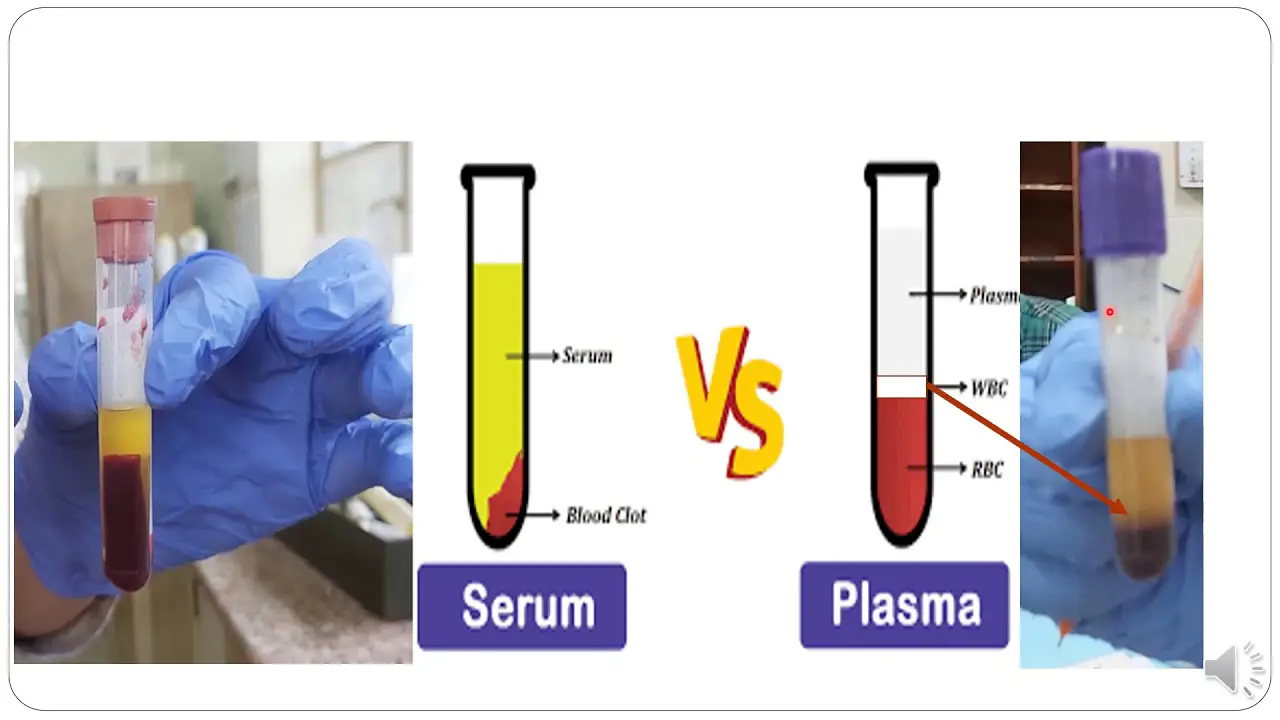
Importance of Monitoring Protein Levels
Regular monitoring of protein levels in blood tests allows healthcare professionals to detect and manage any abnormalities or potential health issues promptly. It aids in maintaining overall health and ensures early intervention if required.
Regular monitoring of protein levels in high serum total protein levels in blood tests is essential for assessing and maintaining overall health. Proteins are essential macromolecules responsible for various biological functions in the body. They play a crucial role in muscle growth, tissue repair, enzyme production, and transportation of molecules.
Elevated serum total protein levels can indicate potential health issues or underlying medical conditions. It is important to monitor these levels to identify any abnormalities or deviations from the normal range. Some reasons for high serum total protein levels include:
- Dehydration: Inadequate fluid intake can cause an increase in protein concentration, resulting in high serum total protein levels.
- Chronic Infections: Ongoing infections, such as viral or bacterial, can cause inflammation and lead to an increase in protein production, resulting in high levels.
- Liver or Kidney Diseases: Impaired liver or kidney function can disrupt the normal protein metabolism, leading to high serum total protein levels.
- Malignancies: Certain cancers, such as multiple myeloma or lymphoma, can cause an abnormal increase in protein production, resulting in high levels.
Monitoring protein levels through blood tests helps healthcare professionals diagnose and manage these conditions effectively. By detecting elevated serum total protein levels, further investigations and targeted treatments can be initiated promptly.
Additionally, monitoring protein levels over time allows healthcare professionals to track the progress and response to treatments, making necessary adjustments as needed. This ensures a more comprehensive approach to managing underlying health conditions.
In conclusion, the importance of monitoring protein levels in high serum total protein levels in blood tests cannot be overstated. Regular monitoring helps identify potential health issues, initiates timely interventions, and tracks treatment effectiveness. By staying vigilant and proactive in monitoring protein levels, individuals can maintain their overall health and well-being.
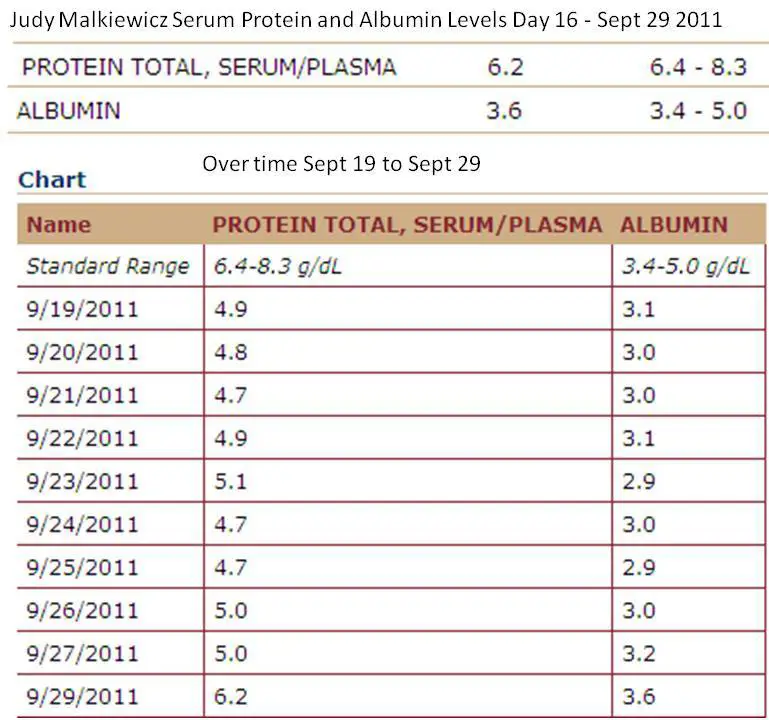
Key Takeaways
- Elevated serum total protein levels can indicate underlying health conditions and may require further evaluation.
- High protein levels can be caused by factors such as inflammation, organ dysfunction, and dehydration.
- Diagnosis should involve proper medical evaluation and consultation.
- Treatment focuses on addressing the underlying cause while managing symptoms and related complications.
- Preventive measures include a healthy lifestyle, adequate hydration, and regular medical check-ups.
FAQ
Q: Can high protein intake cause high serum total protein levels?
A: No, a high protein diet does not directly cause elevated serum total protein levels in blood tests.
Q: Can medication usage affect protein levels?
A: Certain medications, such as corticosteroids or hormones, may impact protein levels. Consult your healthcare professional for specific concerns.
Q: Are there any specific dietary recommendations to manage high serum total protein levels?
A: The dietary approach varies depending on the underlying cause. It is essential to work with a healthcare professional or registered dietitian for personalized recommendations.



Recent Comments